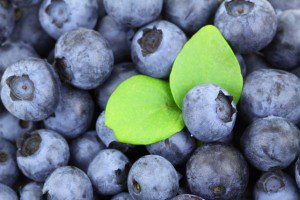Contributing Writer for Wake Up World
“Antioxidant” — these days, definitely a buzz word used by everyone interested in holistic health, or hoping to find a panacea for their multitude of ailments. Look online or in health food stores today and you’ll find a huge variety of precious antioxidants for sale – capsules, powders, fruits and tinctures from all over the world. Most of us have now found out about acai, maqui, goji berries, raw chocolate, green tea, blueberries and the rest.
Antioxidants are feted for their never ending list of health benefits… but are they really the magical cure-alls we’re led to believe? As so often the case, it’s not quite that simple.
[pro_ad_display_adzone id=”110028″]
What Are Antioxidants and Why Do We Need Them?
An antioxidant is a nutrient or a molecule capable of suppressing the oxidation of another molecule. Antioxidants suppress the negative effects of excess free radicals. They are of two kinds: exogenous (from food, like vitamins C,E, A, D) or endogenous (produced by the organism: catalase, superoxide dismutase, gluthation, CoQ10, alpha lipoic acid.)
Other important benefits of antioxidants include the repairing of altered molecules and the chelation of heavy metals. Antioxidants also have a protective effect on DNA, and they produce anti-cancerous chemicals, thereby improving the natural defense mechanisms of the body.
Antioxidants From Food
If you consume organic, high quality, antioxidant rich food on a daily basis, then there’s a good chance that you are consuming an adequate daily amount of these nutrients. However, soil depletion due to industrial food production has led to low quality crops, containing many fewer nutrients than in the past. Also, because of environment’s toxicity, the body needs an increased amount of exogenous antioxidants. These could be an efficient way of preventing and eliminating serious conditions, like cancer. For example, in certain situations, both selenium and vitamin C therapy have been successfully used to treat cancer and eliminate an advanced stage of toxicity.
Carotenoids are a class of over 700 antioxidants with significant beneficial effects, found in yellow, orange, red and green plants. Carotenoids are particularly beneficial for cardiovascular and ocular health (lutein especially). Licopene, a carotenoid found in tomatoes is important for prostate health. Astaxanthin, found in wild salmon, has powerful beneficial effects on the immune and cardiovascular systems and on ocular health; it reduces inflammation, and is brain and DNA protective. Berries are also a rich source of carotenoids and vitamin C.
Organic, fresh vegetables, especially the leafy greens, sprouts and condiments (cinnamon, oregano, turmeric, ginger, cloves) are rich in anti-inflammatory and anti-cancer antioxidants. Glucosinolates found in cruciferous vegetables like broccoli activate detoxifying enzymes, especially those in the gastrointestinal system. Allicin found in garlic, onion and asparagus is a powerful immune boosting and anti-bacterial compound.
Green tea contains epigallocatechin-3-gallate (EGCG), a catechin and one of the most powerful known antioxidants, with beneficial effects on the cardiovascular and ocular system, and on cholesterol regulation. Unfortunately not all green teas are of a good quality; many cheap brands are contaminated with fluoride, include toxic compounds and contain very little EGCG. Matcha and tulsi would be a better choice instead. Also, not all metabolisms obtain beneficial effects after consuming green tea daily. For example, in protein types, green tea determines an increase of oxidation rate, which translates into increased hunger and the too-rapid conversion of nutrients into energy.
Antioxidants Produced by the Body
Out the five antioxidants produced by the body, three are most important: catalase, glutathione and superoxide dismutase. These can convert free radicals into oxygen and water, neutralizing them. Many researchers believe that cholesterol can also be considered an antioxidant, due to its ability to suppress leucotrienes – pro-inflammatory compounds derived from arachidonic acid. Cholesterol has a powerful anti-inflammatory effect and play a critical role in regulating inflammation and free radical activity. A low cholesterol level is associated with many inflammatory, auto-immune conditions.
Glutathione: The Lesser Known Master Antioxidant
Glutathione is the “master-antioxidant” of the body, which is found in each cell and has the ability to maximize the performance of all the other antioxidants. It is synthesized from three amino-acids: glutamic acid, L-cysteine and L-glycine.
Glutathione modulates the immune response, helping it to function at its full potential and killing cytotoxic T-cells. More than 6% of total ATP production (biological energy) is used for synthesizing and regulating glutathione levels. It is extremely important in detoxification processes, especially that of heavy metals and various chemicals, and can repair DNA damage.
All biological systems in the body are affected by the powerful protective and regulating ability of glutathione, but this decreases with age – almost 1% each year, affecting longevity. Toxicity, stress, chronic infections and free radical damage all reduce the body’s ability to produce glutathione. People suffering from cancer, AIDS, diabetes, Alzheimer and Parkinson’s tend to have a very low glutathione level in the body.
Foods like organic, grass fed meat and raw dairy, fish, eggs, blackberries, asparagus and other green vegetables contribute to glutathione production. Selenium, folate, vitamins B12 and B6 are also important nutrients which assist in glutathione synthesis and in maintaining an optimal level.
What Happens When We Lose Our Antioxidant Reserves?
It’s important to understand that oxidation is not a negative phenomenon, but a fundamental process of metabolism. Without oxidation one can’t create energy and the human body wouldn’t be able to function. When oxidation takes place, the result is free radicals – atoms or molecules with a free electron. A certain number of free radicals in the body is actually essential for a proper function of the cell and for health.
But when oxidation is out of control and/or the health of the cell is compromised because of multiple factors, free radicals become the main cause of decomposing, aging and cellular death. This contributes to degenerative conditions like arthritis, diabetes, cardiovascular diseases, cancer and Alzheimer’s. Chronic inflammation in the body can determine an excessive free radical activity and can lead to tissue damage.
Can Antioxidants be Toxic?
When an antioxidant destroys a free radical, the antioxidant itself oxidizes. That’s why the antioxidants reserves must be continuously replenished in the body. This means that while in a certain system an antioxidant is efficient against a free radical, the same antioxidant can be totally inefficient in different systems. In certain situations, an antioxidant can become a pro-oxidant and generate toxic species of reactive oxygen and nitrogen. When antioxidants are transformed into pro-oxidants, contributing to the separation of electrons from atoms, free radical production increases, and so does their damage.
The balance between oxidation and antioxidation is critical in maintaining a healthy biological system. Just as free radicals can be in excess, so can antioxidants when we take large supplements and generate an imbalance.
Free radicals are necessary for life! The body can’t transform air and food into energy without a chain reaction of free radicals. They are also an important part of the immune system, circulating through veins and attacking intruders, and they contribute to fighting bacterial infections. Free radicals are a product of respiration. We need antioxidants to eliminate some free radicals, but not too many!
In the ’90s a series of studies lead to controversy in the medical world, because they fought the idea that the antioxidants are always necessary and beneficial. In 1997 The Lancet published a study done on 2,000 people who supplemented with vitamin E and beta carotene after they suffered a heart attack.
The group that was given vitamin E and the one that was given beta carotene both had a greater risk of suffering a second heart attack. Other similar studies done between 1994 and 1997 demonstrated that vitamin C and E or beta carotene didn’t prevent colon cancer or arterial plaque, and beta carotene and selenium didn’t prevent against cancer, nor did they in the case of smokers, where the risk of pulmonary cancer actually increased with 28% after beta carotene supplementation.
What do these studies show us? That therapeutic antioxidant supplementation is not a panacea, and that disease oriented therapy which doesn’t consider individual biochemistry is not successful either.
“The food (or antioxidant) of one person can be somebody else’s poison.” That’s why it’s necessary to supplement only with the nutrients which are suited to your metabolic type. Any nutrient can lower and raise up to other nine nutrients in the body. For example, taking therapeutic doses of vitamin C can actually cause cancer in certain instances – vitamin C lowers your copper level and if you’re already copper deficient and supplement with vitamin C, you can seriously compromise your immune system.
How Can You Find the Perfect Diet with Sufficient Antioxidants?
Just as any diet will have affect different metabolisms in a different way, so antioxidants also affect each metabolism differently. A diet rich in carbohydrates (and antioxidants), or a high protein diet, or a mixed diet will all offer the necessary antioxidants in a metabolism. Healing is just as likely to happen with a mostly vegetarian diet as with a high protein diet. Degenerative conditions like diabetes, cancer and cardiovascular diseases have been successfully treated either with fresh green juices, or with bone broths and animal fats – all depending on one’s unique biochemistry and genetic requirements.
When certain metabolic functions become imbalanced, then the demand for more nutrients from food increases. Foods which are not able to offer the necessary nutrients to correct imbalances can actually contribute even more to these imbalances. So it’s essential to bring about a biochemical balance by following a plan which supports the individual biochemistry of the person, and which includes the necessary quantity of antioxidants for their unique metabolism, both from food and supplements.
The perennial question: “Which diet is best for me?” can at last be correctly answered, and an efficient solution provided, through Metabolic Typing®.
Article Sources:
- http://www.ncbi.nlm.nih.gov/pmc/articles/PMC3614697/
- http://www.ncbi.nlm.nih.gov/pmc/articles/PMC2952083/
- http://metabolichealing.com/anti-aging-how-this-powerful-antioxidant-protects-from-devastating-toxicity-free-radicals/
- http://www.ncbi.nlm.nih.gov/pubmed/11756405
- http://www.ncbi.nlm.nih.gov/pubmed/8391784
- http://www.ncbi.nlm.nih.gov/pubmed/25425315
- The Role of Reactive-Oxygen-Species in Microbial Persistence and Inflammation
Ralee Spooner and Özlem Yilmaz – Int. J. Mol. Sci. 2011, 12, 334-352; doi:10.3390/ijms12010334
Recommended articles by Raluca Schachter:
- Vitamin D Supplementation: This is Why It Can Be Wrong
- Hypothyroidism or Hashimoto’s? What You Need to Know and Why It Matters
- Understanding Cannabis Oil
- 6 Steps to Solve Your Blood Sugar Problems Permanently
- Antibiotic Resistant Infections: The Dangers… and How You Can Avoid Them
- What Really Happens When You Take Antibiotics?
- Understanding Inflammation and How to Eliminate It Naturally
- Listen to Your Body. Correct Food Ratios. Reverse Disease.
- Cholesterol Myths Debunked
- Follow The Money In “Sick-Care”: What’s Behind The Drugs And Needles?
- What Happens In Your Body When You Suffer From Thyroid Disease?
About the author:
 Raluca Schachter is a dedicated Clinical Nutritionist / Natural Health Practitioner a.k.a “The Health Detective”. Raluca was able to naturally reverse chronic health conditions she was struggling with most of her life, and now uses her knowledge to help as many people as possible do the same. Her health programs and diet plans offer a very unique and comprehensive approach to health, where individual nutritional and biochemical requirements are firstly met using specific nutrients and foods that each metabolism thrives on. Raluca offers her services to international clientele and her practice is fully online based. You can connect with Raluca at www.metabolicenergy.net and https://www.facebook.com/raluca.schachter.metabolicenergy
Raluca Schachter is a dedicated Clinical Nutritionist / Natural Health Practitioner a.k.a “The Health Detective”. Raluca was able to naturally reverse chronic health conditions she was struggling with most of her life, and now uses her knowledge to help as many people as possible do the same. Her health programs and diet plans offer a very unique and comprehensive approach to health, where individual nutritional and biochemical requirements are firstly met using specific nutrients and foods that each metabolism thrives on. Raluca offers her services to international clientele and her practice is fully online based. You can connect with Raluca at www.metabolicenergy.net and https://www.facebook.com/raluca.schachter.metabolicenergy
[pro_ad_display_adzone id=”110027″]







